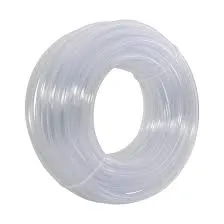Aza . 23, 2024 12:52 Back to list
25mm hdpe pipe
Understanding 25mm HDPE Pipes Benefits and Applications
High-Density Polyethylene (HDPE) pipes have emerged as a popular choice for various applications due to their unique properties and advantages. Among the range of sizes available, the 25mm HDPE pipe stands out for its versatility and efficiency. This article will delve into the benefits, applications, and specifications of 25mm HDPE pipes.
What is HDPE?
HDPE, or High-Density Polyethylene, is a thermoplastic polymer known for its high strength-to-density ratio. This material is made from petroleum and is characterized by its durability, resistance to impact, and corrosion. HDPE pipes are commonly used in the construction, agriculture, and municipal sectors due to their reliability and longevity.
Benefits of 25mm HDPE Pipes
1. Durability One of the most significant advantages of HDPE pipes is their remarkable durability. They are resistant to various environmental factors, such as UV radiation, chemicals, and moisture. This makes them ideal for both indoor and outdoor applications.
2. Lightweight and Flexible Compared to traditional materials like steel or concrete, HDPE pipes are lightweight, which simplifies installation and transportation. Additionally, HDPE is flexible, allowing for easy bending around obstacles without the need for fittings.
3. Corrosion Resistance HDPE pipes do not corrode like metal pipes, which can save money in the long run. This property makes them suitable for use in a wide range of environments, including those that may be corrosive.
4. Low Friction Coefficient The smooth interior of HDPE pipes ensures a low friction coefficient, allowing for efficient fluid flow. This feature is particularly beneficial in applications requiring water transportation.
5. Cost-Effective While the initial investment might be higher than some alternatives, the long lifespan and low maintenance needs of HDPE pipes make them a cost-effective choice over time. Their resistance to leaks and breaks also reduces the need for extensive repair work.
6. Environmental Friendliness HDPE is a recyclable material, making it an environmentally friendly option. Choosing HDPE pipes contributes to reduced plastic waste and promotes sustainability in construction and infrastructure development.
Applications of 25mm HDPE Pipes
25mm hdpe pipe

The 25mm size of HDPE pipes is particularly versatile, serving various functions across multiple industries
1. Water Supply Systems 25mm HDPE pipes are often used in local water distribution systems, conveying potable water from treatment facilities to homes and businesses. Their durability ensures that water quality is maintained.
2. Irrigation Systems In agriculture, these pipes are widely used for irrigation purposes. Their flexibility allows farmers to create efficient irrigation layouts that can adapt to the contours of the land.
3. Drainage Solutions With their resistance to corrosion and chemicals, 25mm HDPE pipes are suitable for drainage systems, helping to manage stormwater and wastewater effectively.
4. Telecommunication HDPE pipes serve as ducts for electrical and communication cables. Their protection against environmental factors allows for secure and long-lasting installations.
5. Gas Distribution In some regions, 25mm HDPE pipes are utilized for the distribution of gas due to their strength and resilience, ensuring safe transportation.
6. Industrial Applications Various industries, including mining and construction, use 25mm HDPE pipes for transporting materials such as slurry and chemicals.
Installation Considerations
When installing 25mm HDPE pipes, it is essential to consider factors like soil conditions, climate, and the specific requirements of the project. Proper handling and installation techniques are critical to maximize the benefits of HDPE pipes. Additionally, using compatible fittings and jointing methods ensures longevity and effectiveness in expected applications.
Conclusion
In summary, 25mm HDPE pipes are an excellent choice for various applications due to their durability, lightweight nature, and resistance to corrosion. They are ideal for water supply, irrigation, drainage, telecommunication, gas distribution, and industrial use. When considering piping materials, HDPE pipes emerge as a reliable, cost-effective, and environmentally friendly option that can stand the test of time. As industries move towards more sustainable and efficient solutions, the popularity and utility of HDPE pipes will likely continue to grow.
-
Premium CPVC Sheet: High-Temp & Chemical Resistant Solutions
NewsAug.15,2025
-
Durable PPR Pipe for Hot & Cold Water Systems - Easy Install
NewsAug.14,2025
-
Durable HDPE Sheet | Versatile & Impact-Resistant Plastic
NewsAug.13,2025
-
Premium PVC Soft Sheets: Clear, Flexible & Durable
NewsAug.12,2025
-
Premium PVC Round Rods: Durable, Chemical Resistant, Easy to Machine
NewsAug.11,2025
-
PP U-channel: Chemical-Resistant, Lightweight & Durable
NewsAug.10,2025

